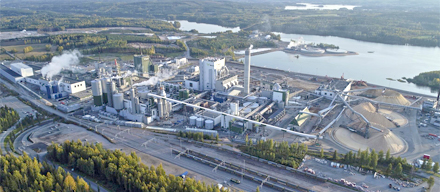
A coalition of forest scientists, including Steve Strauss of Oregon State University, is calling for an immediate review of international policies that the group says put unreasonable and harmful limitations on biotech research. This petition follows on the release of a major report on The Potential for Biotechnology to Address Forest Health from the National Academy of Sciences that has identified biotechnologies as key tools for helping to manage forest health and associated pest epidemics. Source: KTVZ
The petition hosted by the Alliance for Science is asking sustainable forest management systems – among them the Forest Stewardship Council and the Programme for the Endorsement of Forest Certification, two key certifying bodies – to take a look at their views opposing genetically modified trees “and bring them in line with current scientific evidence.”
“Forests are extraordinarily important sources of renewable products and they also provide major ecosystem services, but they’re under increasing stress,” Mr Strauss said. “That’s because of a variety of reasons like increasing demand for products, as well as climate change and the proliferation of forest pests.”
Biotech research may hold solutions, the Alliance for Science says, but that research is hamstrung because trees that have been modified using recombinant DNA – formed by directing specific changes in native DNA, or by combining genetic material from different organisms – aren’t allowed on forests certified by the two aforementioned bodies.
“The ban prevents organizations certified under FSC and PEFC, plus any endorsed by PEFC, from studying DNA trees on certified lands for any reason, even to save a native tree species against an invasive pest,” the Alliance’s petition notes.
“They are also precluded from using rDNA organisms for biocontrol, despite advancements in gene editing that can increase precision and reduce off-target effects.”
The forestlands certified under those standards amount to approximately 470 million hectares – that’s more area than all of Australia. The ban includes gene editing methods such as CRISPR, the most precise system for improving the beneficial traits of an organism.“







